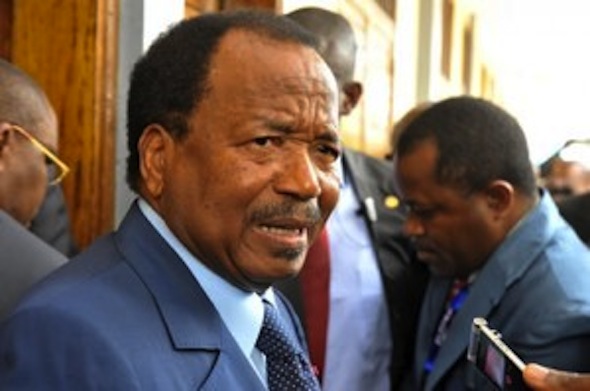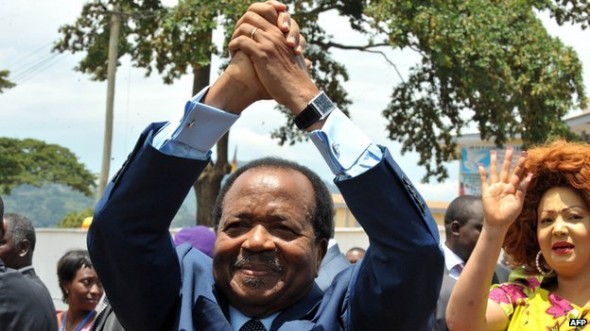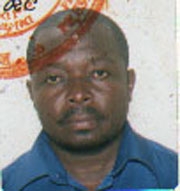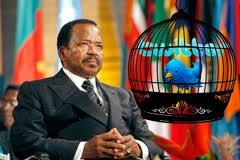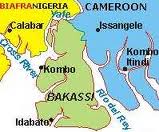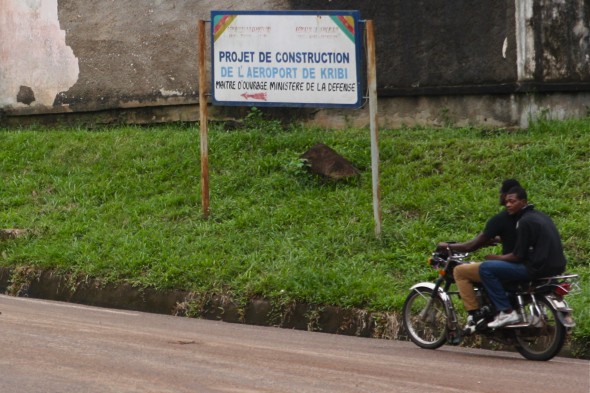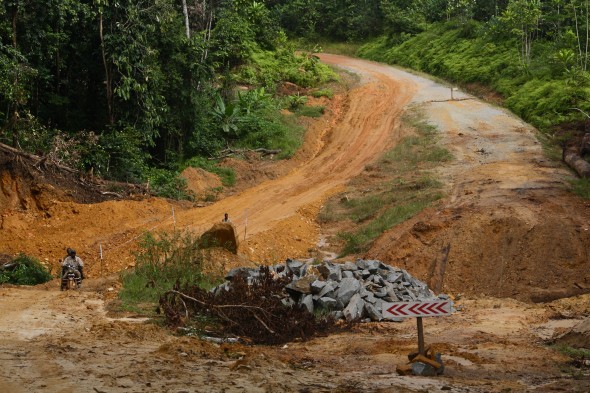More elections in Cameroon. Does anyone care?
Nearly 20 years after deciding that Cameroon needed a Senate, President Paul Biya recently announced that the country’s first Senate elections will be held on April 14, 2013. He made the surprise announcement at the end of February, leaving little time to organize a credible election.
Voters will elect 70 senators, while Biya will hand-pick the remaining 30, according the presidential decree read over state radio.
The SDF, Cameroon’s main opposition party, loudly denounced the elections and pledged a boycott, then in a awkward volte face several days later, agreed to participate. SDF party members now say the party will participate in the Senate elections as it does not think Biya, 80, will make it to the end of his term.
According to the Cameroonian constitution, the head of the Senate would assume the interim in the event of a mid-term presidential vacancy.
Biya’s planned senatorial elections seem to indicate that he is interested in perpetuating the status quo of Cameroonian politics into the post-Biya era.
While U.S. votes, Cameroon “celebrates”
While Americans went to the polls to decide if Barack Obama would serve a second term, Cameroonians “celebrated” the 30th year in office of their president, Paul Biya.
Those who felt that 30 years in power was a cause for protest, rather than celebration, were met with tear gas and water cannons when they attempted to stage a peaceful opposition event.
“We had just started the peaceful march when a large number of well-armed police and gendarmes deployed by the repressive regime of Biya used water cannon, teargas and other weapons to disperse and brutalise thousands of our activists,” Jean Michel Nintcheu, an opposition member of parliament, told Reuters by phone from Douala.
Cameroon athletes “disappear” from Olympic Village
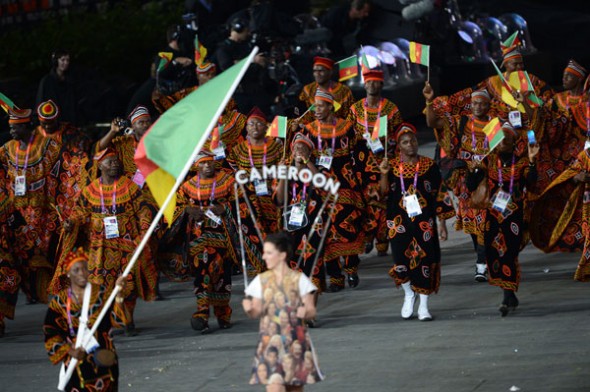
Photo: Cameroon's delegation takes part in the opening ceremony of the London Olympics on July 27, 2012. Credit: Christophe Simon / AFP/Getty Images
While President Paul Biya was jetting off to Switzerland for a “short, personal visit,” a number of the Cameroonian Olympic athletes bailed on Team Cameroon.
The Los Angeles Times reports:
Seven Cameroonian athletes have disappeared from the Olympic Village in London, a Cameroonian official said. Five boxers, a swimmer and a soccer player are missing, the state Cameroon Tribune reported, citing Team Cameroon chief David Ojong. The first to disappear reportedly was female soccer goalie Drusille Ngako, followed by swimmer Edingue Ekane Paul. The five boxers then vanished.
Cameroon quietly ups oil production
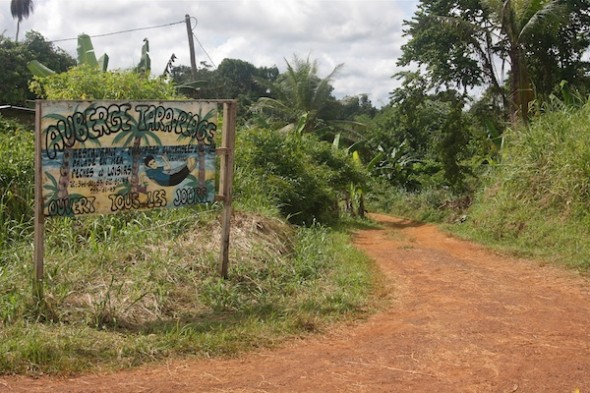
Kribi, Cameroon, where sleepy beach resorts will soon give way to a major port and gas plant. Photo by Christiane Badgley
Cameroon’s oil industry doesn’t get much international attention these days, but like its neighbors the country has seen growing offshore activity over the last few years. After years of declining output, the country’s production levels are once again on the rise.
The Scottish company, Bowleven, has been drilling in Cameroon for several years now and its hits and misses usually get some coverage in the business press. Kosmos Energy, Perenco, Shell, ExxonMobil and Noble Energy, among others, are also actively drilling in the country.
Although Cameroon’s oil production levels are close to those of Ghana, there’s no talk of transparent revenue management in Cameroon. The country recently had its EITI candidacy status renewed for another 18 months. It should be noted that the country was already “close to compliant” in 2010 and hasn’t made much progress since. According to EITI rules, “If Cameroon does not achieve Compliant status by 15 August 2013, it will be de-listed.”
Cameroon: Did you say election?
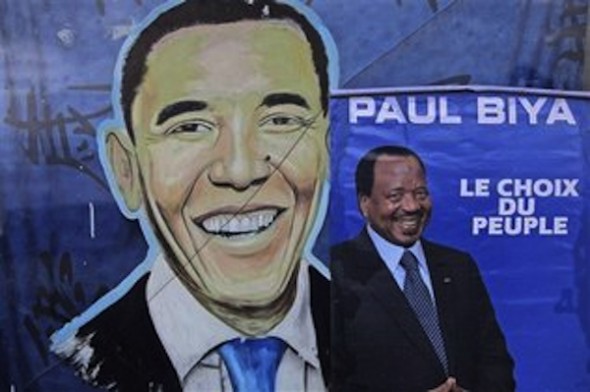
Yaounde, October 7, 2011. Photo: Sunday Alamba/AP
Do you know there’s a presidential election tomorrow (October 9th) in Cameroon?
Unless you’re Cameroonian or closely follow Cameroonian/African politics, you may not have heard anything about this election.
And yet…Paul Biya, president and favored presidential candidate, has been in office for nearly 30 years. That alone — in this year of massive political upheaval — would seemingly bring a bit more media attention to Cameroon’s upcoming election. If nothing else, one might ask why there’s no viable opposition in Cameroon and what this portends for the country’s future “stability” (“stability” being the grand achievement of Biya, who at 78, is not going to be around for much longer).
Standing up for E.G.: We just need some more time
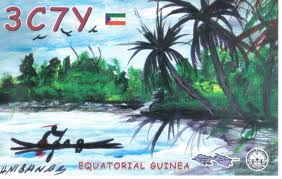 Anatolio Ndong Mba, Ambassador to the United Nations for Equatorial Guinea, recently wrote a letter to The New York Times in response to a critical article in the May 31st edition of the paper. Here’s his letter:
Anatolio Ndong Mba, Ambassador to the United Nations for Equatorial Guinea, recently wrote a letter to The New York Times in response to a critical article in the May 31st edition of the paper. Here’s his letter:
To the Editor:
“An Iron Grip in Africa, With Ties to the U.S.” (Malabo Journal, May 31) presents an unrealistic and outdated image of Equatorial Guinea, a country that is struggling vigorously to become more free, to modernize itself and to provide a better standard of living for its citizens.
Committee to Protect Journalists calls for justice in Cameroon
One year ago, Cameroonian journalist Germain Cyrille “Bibi” Ngota Ngota died in his Kondengui Prison cell. Denied medical attention, Ngota’s death was murder by abandonment (the government denied this allegation and “proved” through its own inquiry that Ngota died due to his poor health). The Committee to Protect Journalists (CPJ) spoke out at the time and, one year later, is again demanding justice and reform.
Cameroon negotiating release of Bakassi hostages
It was important enough for President Biya to cut short his Swiss holiday, so here’s the reprint from AFP:
YAOUNDE — Cameroon authorities have opened negotiations for the release of 13 officials kidnapped in the disputed Bakassi peninsula, a source close to the security service said Wednesday.
The 13 officials, including the region’s sub-prefect, were taken hostage earlier this week in two attacks that also killed two police paramilitaries.
A government spokesman on Wednesday confirmed the number of kidnapped at 13. Earlier it was believed 11 people had been kidnapped. Continue reading . . .
Election Year Flurry of Public Works (announcements)
Bridges, dams, hydroelectric plants, roads and railways! In Cameroon every day seems to bring another announcement of an ambitious, much-needed and long-overdue public works project. Before long the country will be buzzing with activity and from Kribi to Douala, Limbe, Yaounde and beyond, Cameroon will be on the fast track to development, heading for middle income status by 2035 (You can download the government working paper, Cameroon Vision 2035, or read about it at African Economic Outlook).
The Chinese, the French, the Americans and the World Bank are all announcing projects and loan packages for infrastructure and industry — certainly many lucrative deals are on the horizon. There’s just one catch, though. This is Cameroon and it’s an election year.
All sorts of promises get made during an election year — that’s politics everywhere, I imagine. But Cameroonians have watched their president make hollow promises for decades. Drive along any road and you’ll see signs announcing public works projects. Sometimes the signs indicate the duration of the work, “36 months”, but don’t include a start- or end-date. Or you’ll see a start-date, but nothing else. Either way, it’s often a sign next to nothing or next to a pile of rubble that looks like it’s been there, untouched, for months. So, understandably any announcement today will likely be perceived as nothing more than “effet d’annonce” (hype).
Paul Biya’s New Year’s Wishes
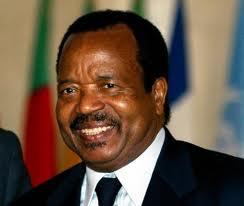 Cameroon’s president Paul Biya sent out his annual New Year’s message on December 31st.
Cameroon’s president Paul Biya sent out his annual New Year’s message on December 31st.
It was a generally positive message, with much emphasis on the 2010 implementation of the “ten-year growth and employment strategy, the first phase of (Cameroon’s) journey towards emergence.”
Of course for Cameroonians, who have been listening to Biya deliver solemn messages to the nation for 28 years, it’s probably hard to get excited about yet another growth and development plan. As for the “journey towards emergence,” that’s a reference to the 2009 governmental “vision” report that calls for Cameroon to become an emerging economy by 2035. Considering that Cameroon is now slowly emerging from a twenty-year economic slump, that’s quite a challenge.
In many ways the country is worse off today than it was two decades ago and although there are many reasons for Cameroon’s economic woes, corruption and cronyism have done serious damage to the country’s economy. With Biya at the helm since 1982, it’s easy to understand why many Cameroonians don’t pay too much attention to these messages.
Nonetheless the message did give a sense of where the country could be headed, most notably regarding electricity-generating projects (Cameroon’s potential for growth in many areas is limited by a lack of electricity). Biya cited several power projects including the Lom Pangar hydroelectric dam, which he described as being “on schedule”. This is one project I’ll be looking at as it will flood a section of the Chad-Cameroon pipeline and it’s unclear who will pay for the recommended pipeline reinforcements.
In the coming months we’ll see how much of this New Year’s message translates into real action on the ground and how much if it turns out to be empty declarations made with an eye towards the upcoming presidential elections. Unfortunately there are many electrification projects, roads and other infrastructure projects that look good on paper, sometimes even get started only to be left unfinished — or in a perpetual state of “under construction.”
The English version of Biya’s address is posted here.
Foreign Aid for Scoundrels
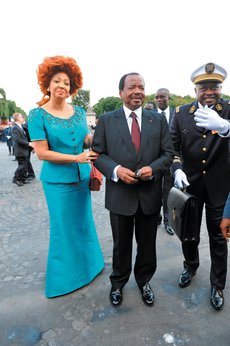
Cameroon’s President Paul Biya, center, with his wife Chantal Biya at a Bastille Day parade on the Champs Elysées, Paris, July 14, 2010. Photo: Orban Thierry/Sipa Press
Foreign Aid for Scoundrels by William Easterly | The New York Review of Books.
William Easterly has written an article in The New York Review of Books that seems fitting for reading on International Anti-Corruption Day. Easterly writes about the “dirty secret” of the international aid system: “Despite much rhetoric to the contrary, the nations and organizations that donate and distribute aid do not care much about democracy and they still actively support dictators. The conventional narrative is that donors supported dictators only during the cold war and ever since have promoted democracy. This is wrong.”
Cameroon and Paul Biya feature prominently in the article. Easterly points out $35 billion in foreign aid during the Biya era have led neither to poverty reduction nor growth in Cameroon. “The average Cameroonian is poorer today than when Biya took power in 1982.”
You can read more by Easterly on the “Aidwatch” blog: http://aidwatchers.com/
Deby’s Surprise Visit
The President of Chad, Idriss Deby, made a surprise visit to Yaounde on October 28th. As the visit was announced only 24 hours before Deby’s arrival, the private press was full of speculation on what urgent matter brought Deby to Cameroon.
Officially, Biya and Deby held a short, private meeting to discuss bilateral cooperation and the receding waters of Lake Chad, an item that both countries will bring up at the Copenhagen climate conference. Unofficially, the corruption scandal at the Bank of Central African States, in which a Chadian minister may be implicated, as well as the renegotiation of pipeline contracts, could have been items for discussion.

